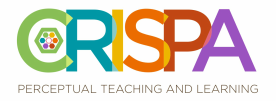Publications
From the CRISPA team:
Lesson Planning with Purpose: Five Approaches to Curriculum Design
Christy McConnell, Bradley Conrad, P. Bruce Uhrmacher
Click here to order your copy!
Full Citation: McConnell, C., Conrad, B., & Uhrmacher, P. B. (2020). Lesson planning with purpose:
Five approaches to curriculum design. New York, NY: Teachers College Press.
Five approaches to curriculum design. New York, NY: Teachers College Press.
Because of Intellectual Property reasonings, we cannot provide links to these journal articles, but feel free to contact our team (the authors) for assistance.
Curriculum Disruption: A Vision for New Practices in Teaching and LearningFull Citation: Conrad, B, C. Moroye & P. B. Uhrmacher (2015). Curriculum Disruption: A Vision for New Practices in Teaching and Learning. Current Issues in Education, 18(3).
Finding the Balance Between Process and Product Through Perceptual Lesson PlanningFull Citation: Uhrmacher, P. B., Conrad, B. M., & Moroye, C. M. (2013). Finding the Balance Between Process and Product Through Perceptual Lesson Planning. Teachers College Record, 115(7).
Aesthetic Themes as Conduits to CreativityFull Citation: Moroye, C., & Uhrmacher, P. B. (2010). Aesthetic themes as conduits to creativity. Cultivating curious and creative minds: The role of teachers and teacher educators. Lanham, Maryland: Rowman & Littlefield Education, 99-114.
|
Aesthetic, Spiritual, and Flow Experiences: Contrasts and Educational ImplicationsFull Citation: P. B. Uhrmacher, B. Conrad, and C. Moroye. (2016). Aesthetic, Spiritual, and Flow Experiences: Contrasts and Educational Implications. Education and Culture, 32(1).
Standards, Not Standardization: Orchestrating Aesthetic Educational ExperiencesFull Citation: Moroye, C. M., & Uhrmacher, P. B. (2012). Standards, Not Standardization: Orchestrating Aesthetic Educational Experiences. Language Arts Journal of Michigan, 28(1), 13.
Aesthetic Themes of Education
|
Chan Teaching and Learning: An Aesthetic Analysis of its Educational ImportFull Citation: Meng, L., & Uhrmacher, P. B. (2014). Chan teaching and learning: An aesthetic analysis of its educational import. Asia Pacific Education Review, 1-11.
Toward a Theory of Aesthetic Learning Experiences
|
Presentations
Live Session with the Authors: Discussion of Lesson Planning with Purpose
Session One: Perceptive Teaching and Cultural Responsiveness
Session Two: Teaching in the Time of Coronavirus
- Who are you and what do you do as a teacher to create meaningful and equitable experiences?
- Overview of Five Approaches to Curriculum Design: Behaviorist, Constructivist, Aesthetic, Ecological, Integrated Social Emotional Learning
- Small Group Discussions and Planning
Session Two: Teaching in the Time of Coronavirus
- Planning for Meaningful Educational Experiences in a variety of models
- Small Group Discussions and Planning

